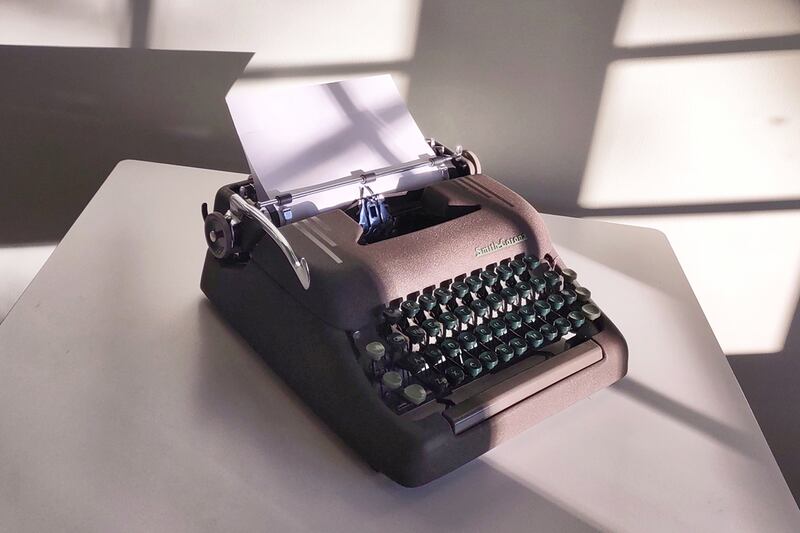I acquired this typewriter in 1972, when the Susquehanna River overflowed its banks and flooded most of the cities that it passes through in Pennsylvania. The Susquehanna runs from upstate New York to Chesapeake Bay in Maryland. In June, Hurricane Agnes hit, and it rained for 28 straight days, as I remember. Some cities were under 20 feet of water. When the waters receded, crews were sent in to clean up the debris and damage. I worked on one of those crews, based in the town of Wilkes-Barre, a city I’d never been to. The only thing I knew about Wilkes-Barre was that Herman Mankiewicz, a screenwriter who won an Academy Award for best screenplay for “Citizen Kane,” grew up there. We worked from 7 in the morning to 7 at night and slept on cots in the high school gym.
One day, as I was going through a pile of debris, I saw this old Smith-Corona typewriter. It was covered in mud, and like everything else, had spent three days under the floodwater. I worked there for a month, and when I returned home, I brought the typewriter with me.
I carefully cleaned it, lubricated the mechanism and installed a new ribbon. I used it for many years, and still do occasionally, though most of the time I now use a computer.
Do I write differently when I use the typewriter? I thought about this as I loaded a sheet of paper. Recent studies have shown that writing with a pen or pencil activates more areas of the brain and increases memory more than using a computer. I imagine writing on a typewriter would also have different effects. It’s slower, with no distractions like email or social media. On a typewriter, you can’t edit as you write, which is a danger on computers. No electricity is needed, it doesn’t crash and you get to see the words on a page, so there’s no need for a printer.
And the sound! Pressing that first key, watching the thin arm with a letter at its tip as it snaps up and leaves its imprint on the page. Then another, and another, resulting in a chorus of sound. What a piece of engineering! You are physically connected to the machine and therefore the process. And there’s that whole lineage of writers past and present who created essays, novels, poems and screenplays using a typewriter. Rolling another piece of paper into the machine, I wondered if Herman Mankiewicz wrote “Citizen Kane” on a Smith-Corona.
This story appears in the May 2024 issue of Deseret Magazine. Learn more about how to subscribe.

